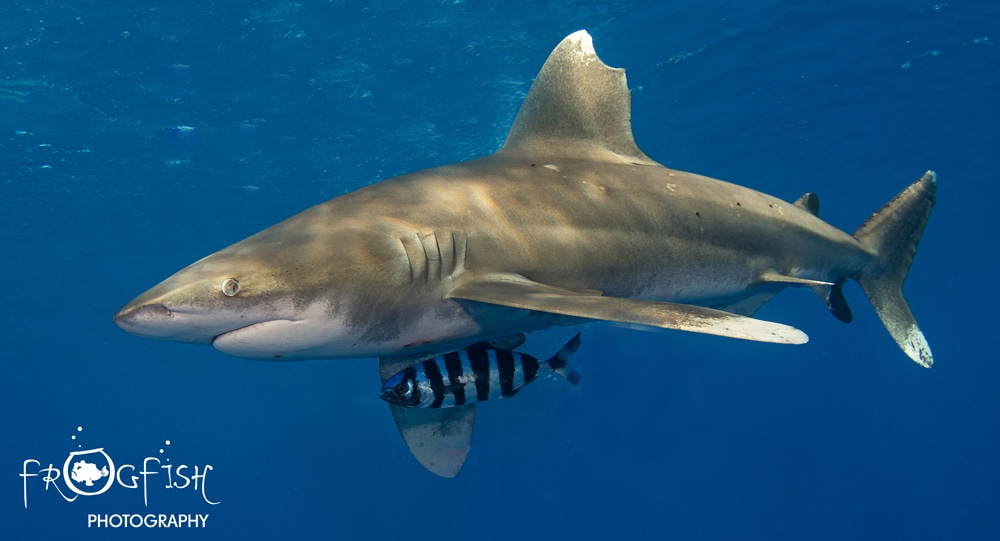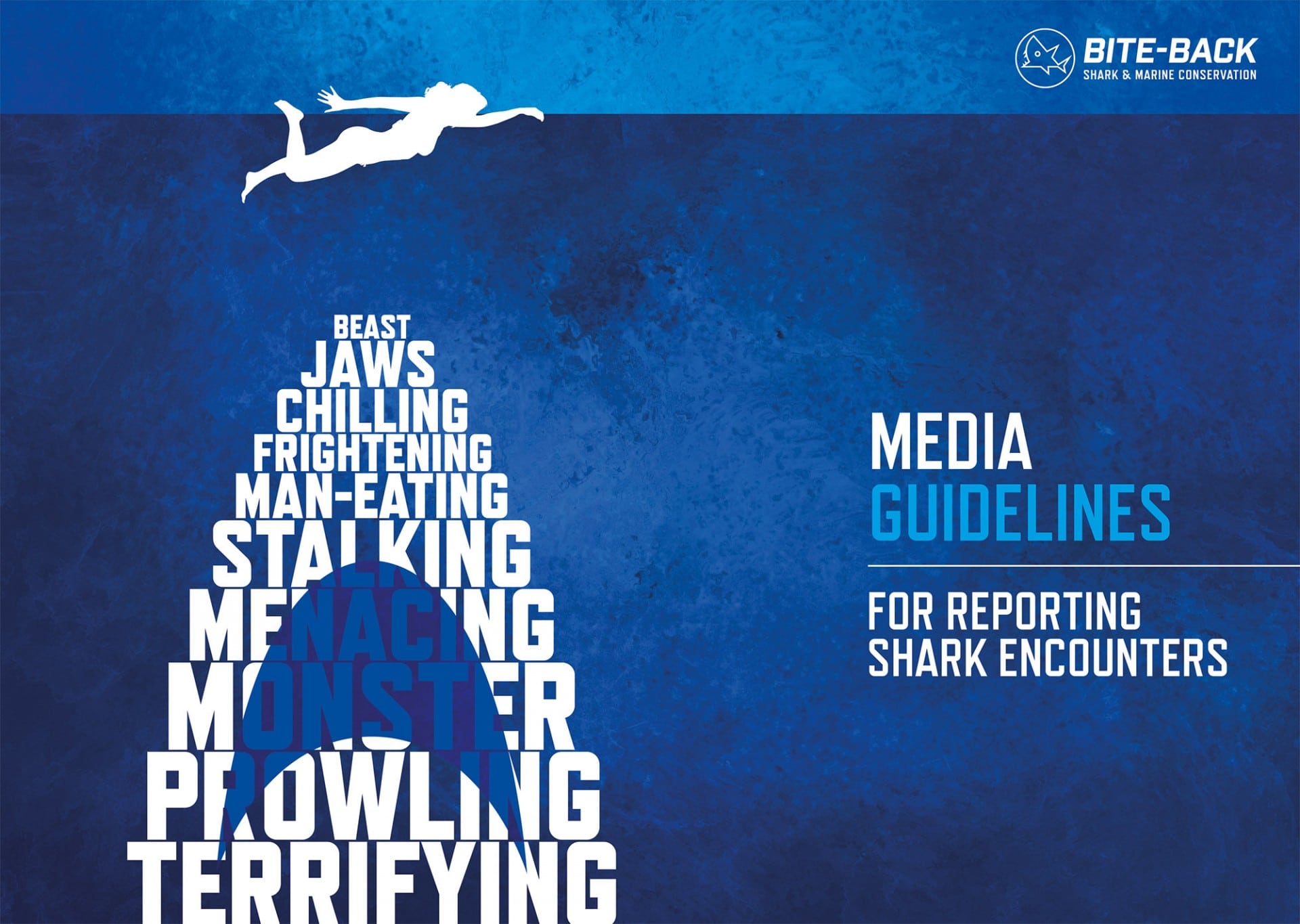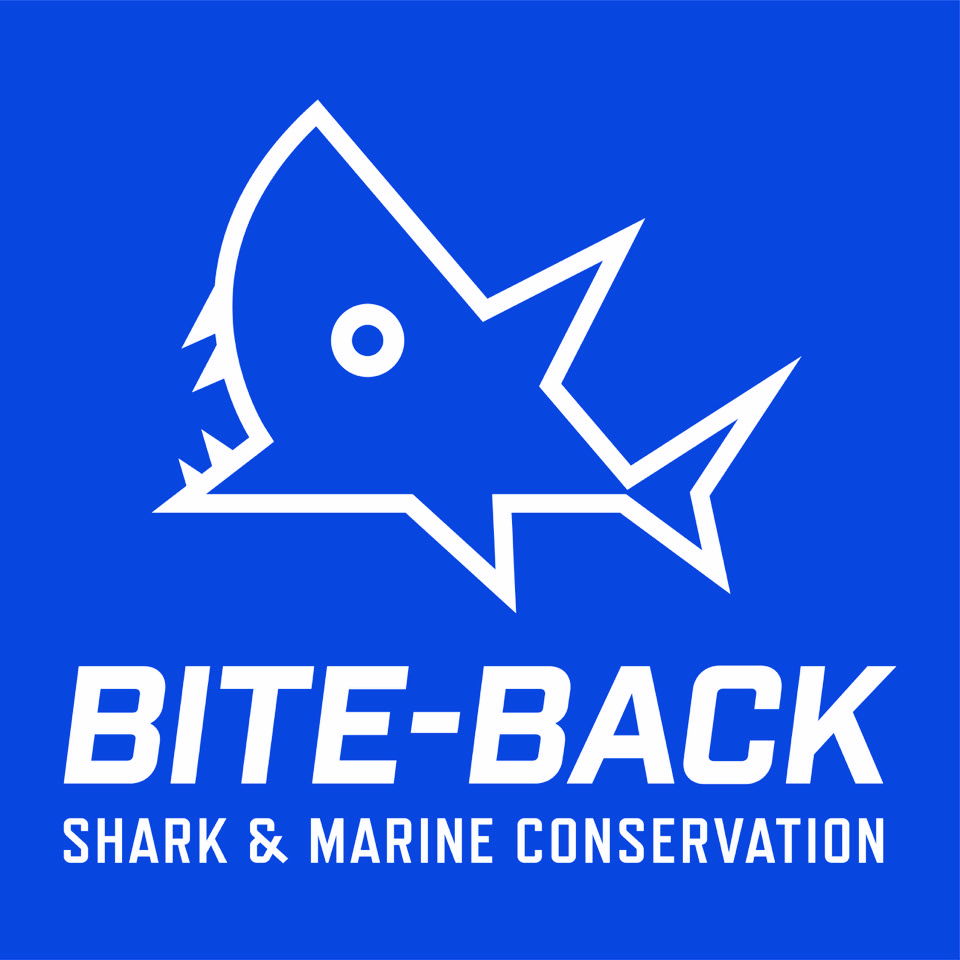Marine Life & Conservation
Mind your Language: TV Presenters back Bite-Back’s call for responsible shark journalism

TV presenters Steve Backshall and Hugh Fearnley-Whittingstall head a growing list of high profile individuals supporting a call for responsible shark journalism by Bite-Back Shark & Marine Conservation.
The UK charity says that decades of news headlines labelling sharks as ‘monsters’, ‘killers’ and ‘beasts’ — language typically used to describe rapists, terrorists and paedophiles — has created a climate of fear and loathing that is thwarting shark conservation initiatives.
Bite-Back’s view is underpinned by a recent survey that revealed 46% of Brits think that sharks are terrifying than spiders, snakes and rodents combined and that 64% would prefer them not to exist.
TV presenter and patron of Bite-Back Shark & Marine Conservation, Steve Backshall, said: “It’s time that journalists understand how these sensational headlines and falsehoods are perpetrating a hatred of sharks that justifies their boundless slaughter. As such, I think the media is complicit in one of the greatest deliberate exterminations in our planet’s history.”

An estimated 73 million sharks are slaughtered every year and Britain ranks in the top 25 shark fishing nations in the world. As a result, populations of key shark species including the great white, hammerhead, oceanic whitetip and thresher have fallen by 90% in the past 60 years.
Chef and campaigner Hugh Fearnley-Whittingstall said: “Sharks are getting a bad press they simply don’t deserve. Decades of sensational headlines have stripped sharks of their status as vital marine species and all too often left the public frightened for little reason. I’d welcome any move by the media to fairly report sharks rather than default to tired and inaccurate click bait captions.”
In the past six weeks most UK print, online and broadcast media outlets have run shark stories from around the world and closer to home. Many have used language including ‘ferocious’, ‘terrifying’, ‘killer’, ‘invasion’, ‘blood-thirsty’, ‘lurking’ and ‘deadly’ to describe sharks despite the fact that typically only six people a year worldwide die from shark encounters, whereas dogs kill around 25,000. On average British cows kills more people each year than all the sharks in the world.
Bite-Back has also achieved support for this appeal from ocean ambassador Wendy Benchley, widow of Peter Benchley the author of JAWS. She said: “While the cinema is a place of entertainment, newspapers and media channels are a place for facts. For far too long the news press have blurred the boundaries between fact and fiction and got away with reporting sharks as man-eating monsters when it’s simply not true. I believe this constant portrayal of sharks as the bad guys rather than our ocean heroes is hindering shark conservation efforts.”
In a bid to make Britain the first western country to ban shark product by 2022, Bite-Back has successfully campaigned for ASDA, Iceland Foods and MAKRO to end the sale of shark steaks. It has also spearheaded an 82% fall in the number of UK restaurants selling shark fin soup and prompted Holland & Barrett to end the sale of shark cartilage capsules.
 Campaign director for Bite-Back Shark & Marine Conservation, Graham Buckingham, says: “No other creature on this planet is described with inflammatory language intended to spread fear, panic and hate. As a result, the mere presence of a shark in the sea prompts sensational, attention-grabbing headlines. We’re keen to work with the press and reach a point where shark encounters are reported accurately and fairly and in a way that doesn’t jeopardise our blue planet.”
Campaign director for Bite-Back Shark & Marine Conservation, Graham Buckingham, says: “No other creature on this planet is described with inflammatory language intended to spread fear, panic and hate. As a result, the mere presence of a shark in the sea prompts sensational, attention-grabbing headlines. We’re keen to work with the press and reach a point where shark encounters are reported accurately and fairly and in a way that doesn’t jeopardise our blue planet.”
The charity now plans to present its 15 page media guideline document on best practice for reporting shark encounters to all the major news channels in the UK.
Read more about shark conservation issues visit www.bite-back.com
Marine Life & Conservation
Leading UK-based shark conservation charity, the Shark Trust, is delighted to announce tour operator Diverse Travel as a Corporate Patron

 Corporate Patrons provide a valuable boost to the work of The Shark Trust. The Trust team works globally to safeguard the future of sharks, and their close cousins, the skates and rays, engaging with a global network of scientists, policymakers, conservation professionals, businesses and supporters to further shark conservation.
Corporate Patrons provide a valuable boost to the work of The Shark Trust. The Trust team works globally to safeguard the future of sharks, and their close cousins, the skates and rays, engaging with a global network of scientists, policymakers, conservation professionals, businesses and supporters to further shark conservation.
Specialist tour operator Diverse Travel has operated since 2014 and is committed to offering its guests high quality, sustainable scuba diving holidays worldwide. Working together with the Shark Trust will enable both organisations to widen engagement and encourage divers and snorkellers to actively get involved in shark conservation.
“Sharks are truly at the heart of every diver and at Diverse Travel, we absolutely share that passion. There is nothing like seeing a shark in the wild – it’s a moment that stays with you forever!” says Holly Bredin, Sales & Marketing Manager, Diverse Travel.
“We’re delighted to celebrate our 10th year of business by becoming a Corporate Patron of the Shark Trust. This is an exciting partnership for Diverse and our guests. We will be donating on behalf of every person who books a holiday with us to contribute towards their vital shark conservation initiatives around the world. We will also be working together with the Trust to inspire divers, snorkellers and other travellers to take an active role – at home and abroad – in citizen science projects and other activities.”
Paul Cox, CEO of The Shark Trust, said:
“It’s an exciting partnership and we’re thrilled to be working with Diverse Travel to enable more divers and travellers to get involved with sharks and shark conservation. Sharks face considerable conservation challenges but, through collaboration and collective action, we can secure a brighter future for sharks and their ocean home. This new partnership takes us one more valuable step towards that goal.”
For more information about the Shark Trust visit their website here.
For more about Diverse Travel click here.
Marine Life & Conservation
Shark Trust Asks Divers to help with Shark Sightings this Global Citizen Science Month

 Whether you are stuck for ideas of what to do with the kids or are off on the dive trip of your dreams. You can get involved in Citizen Science Month and help the Shark Trust by providing vital data about sharks are rays both close to home and further afield.
Whether you are stuck for ideas of what to do with the kids or are off on the dive trip of your dreams. You can get involved in Citizen Science Month and help the Shark Trust by providing vital data about sharks are rays both close to home and further afield.
In addition to reporting the sharks and rays you see on your dives, the eggcases you find on the beach, the Shark Trust is looking for some specific data from divers who are asked to report any Oceanic Whitetip and Basking Sharks.
Oceanic Whitetip Sharks
The Shark Trust are looking specifically for Oceanic Whitetip Shark sightings over the coming weeks and months. So, if you are diving anywhere in the world, please report your sightings via the website or app.
Website: https://recording.sharktrust.org/
App: Search The Shark Trust in your app store
The Oceanic Whitetip. Known for their incredibly long dorsal and pectoral fins, this species was once the most abundant oceanic-pelagic species of shark on the planet.
Large and stocky, they are grey or brown above, and white below and famous for their huge rounded first dorsal fin and paddle-like pectoral fins. The fins also highly prized within the shark fin trade. Whilst they are mostly solitary, Oceanic Whitetips do occasionally hunt in groups.
An inquisitive species, they were easy prey for fisheries. Combined with their low reproductive rate, they were inevitably at high risk of population depletion. And declines of up to 99% have been reported in certain sea areas. They are listed as Critically Endangered on the IUCN Redlist (2019).
Conservation efforts to discourage further declines include listing on CITES Appendix II and CMS Appendix I. They’re also the only species prohibited from take by all the Tuna RFMOs (Regional Fisheries Management Organisations). However, these measures do not mean that Oceanic Whitetips are not still caught – whether targeted or as bycatch – in some parts of the world. With populations declining at such a high rate, effective implementation of management measures is essential to ensure that the species can recover.
If you are lucky enough to get an image of an Oceanic Whitetip and you record your sighting on the Shark Trust app or website YOU CAN WIN! All images submitted with sightings, that also give consent to use in conservation messaging, will be in with a chance to win an Oceanic Whitetip T-shirt and mug. The competition will run until the end of “Shark Month” in July – so keep those sightings (and images) coming in.
Basking Sharks
Basking Shark (Cetorhinus maximus) season is upon us, and the Shark Trust is asking everyone to keep an eye out for these majestic giants over the summer months. If you see any, you can record your sighting to the Basking Shark Sightings database.
Each year, these mighty fish return to British waters to feed on plankton. You may see one, (or a few if you’re really lucky) from around April-October. They can be seen feeding at the surface of the water, where they look like they’re basking in the sun. Thus, their name!
Sighting hotspots around the British Isles include southwest England, Isle of Man, north coast of Ireland, and western Scotland. The Sea of the Hebrides is the most prolific sightings area in Scotland, but they have been spotted all around the coast and have even ventured into some of the sea lochs. The Shark Trust has received thousands of sightings since the Basking Shark project began, but more data is needed to truly understand what is going on with population numbers and distribution. You can help by recording your sightings this summer.
Great Eggcase Hunt
The Shark Trust has an Easter Egg Hunt with a difference for you to try. Take part in the Great Eggcase Hunt and get involved with a big citizen science project that helps shark, ray and skate conservation. And it’s an enjoyable activity for all the family.
The Shark Trust also want snorkellers and divers to record their underwater eggcase findings. Underwater records help pinpoint exactly where sharks and skates are laying their eggs and can help link to beach records. Learning the depth and substrate that they lay on also helps better understand the species.
Find out more: https://www.sharktrust.org/great-eggcase-hunt
Whether you are diving, snorkelling or exploring on the beach you can take part in Citizen Science Month and get actively involved in shark and ray conservation. Find out more: www.sharktrust.org
-

 News3 months ago
News3 months agoHone your underwater photography skills with Alphamarine Photography at Red Sea Diving Safari in March
-

 News2 months ago
News2 months agoCapturing Critters in Lembeh Underwater Photography Workshop 2024: Event Roundup
-

 Marine Life & Conservation Blogs2 months ago
Marine Life & Conservation Blogs2 months agoCreature Feature: Swell Sharks
-

 Blogs2 months ago
Blogs2 months agoMurex Resorts: Passport to Paradise!
-

 Blogs2 months ago
Blogs2 months agoDiver Discovering Whale Skeletons Beneath Ice Judged World’s Best Underwater Photograph
-

 Gear News3 months ago
Gear News3 months agoBare X-Mission Drysuit: Ideal for Both Technical and Recreational Divers
-

 Gear Reviews2 months ago
Gear Reviews2 months agoGear Review: Oceanic+ Dive Housing for iPhone
-

 Marine Life & Conservation2 months ago
Marine Life & Conservation2 months agoSave the Manatee Club launches brand new webcams at Silver Springs State Park, Florida









